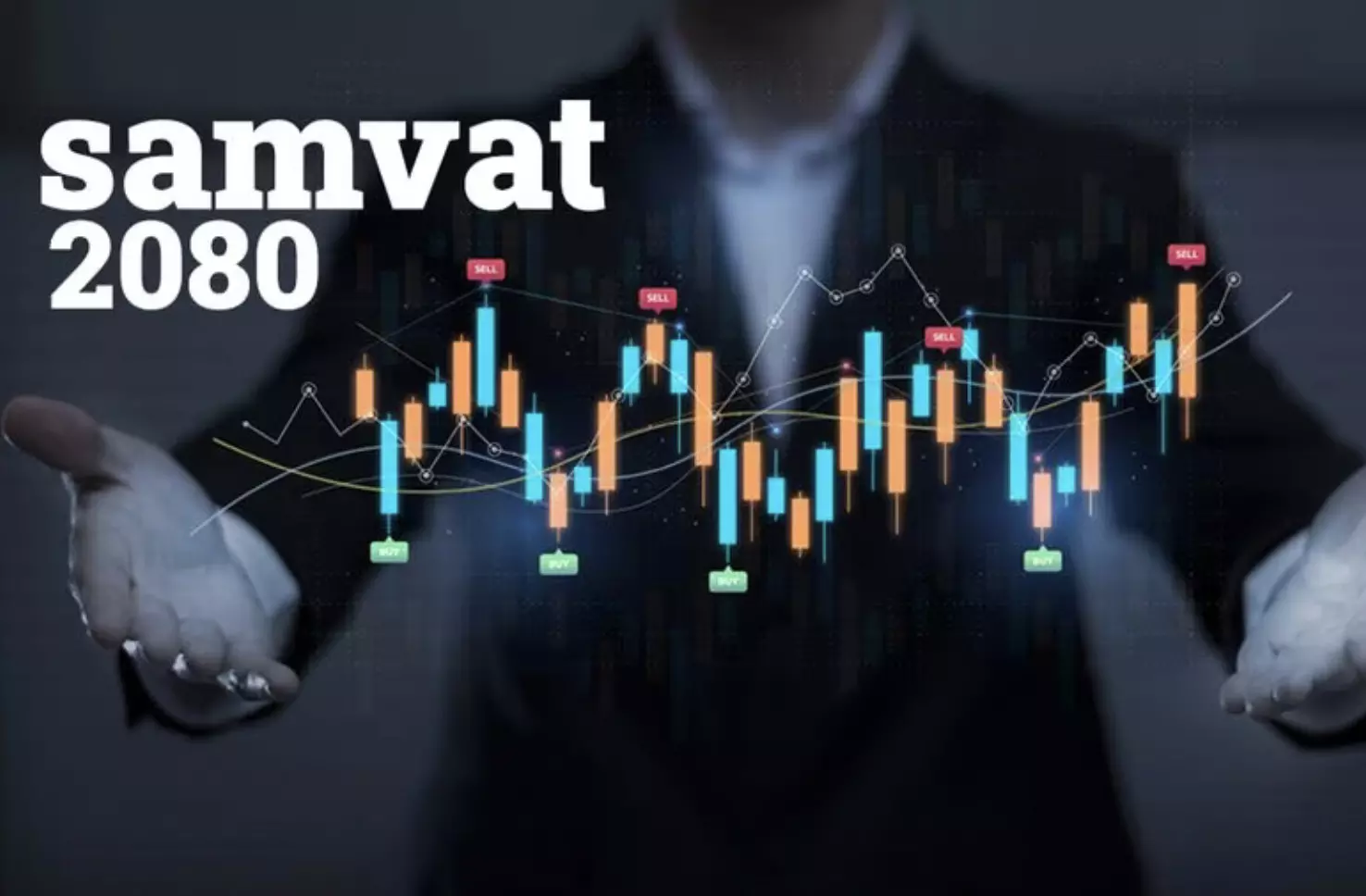Samvat 2080 kickstarts on a positive note, potential for substantial gains if risks are managed well
image for illustrative purpose

As the new Samvat year, 2080, commences on November 12 with the celebration of Diwali, financial experts are providing insights into the trajectory of the Indian stock market. The market's direction will be influenced by the delicate balance between macroeconomic and fundamental stability and the effective management of high valuations.
The Samvat year began on a positive note, witnessing a significant uptick in the Indian share market. During Diwali Muhurat trading, the benchmark NSE Nifty 50 surged by 110 points to reach 19,530, while the BSE Sensex gained 370 points, reaching 65,275. The Bank Nifty also displayed strength, registering a gain of 180 points to reach 44,000.
Factors contributing to the positive outlook for the Indian stock market in Samvat 2080 include well-managed macroeconomics, a crucial aspect for market stability. S. Naren, the Chief Investment Officer of ICICI Prudential AMC, emphasized the importance of effectively managing macroeconomic indicators such as the current account deficit and inflation, highlighting their positive impact on equities.
Veteran investor Shankar Sharma expressed confidence in India's growth trajectory, asserting that regardless of the political party that comes to power after the 2024 elections, the Indian stock markets are unlikely to witness a significant decline. Sharma emphasized his bullish stance on India, emphasizing that the market has witnessed the outcomes delivered by various political parties.
Manish Sonthaliya, Chief Investment Officer at Emkay Investment Managers, offered a positive forecast for Samvat 2080, predicting a 15-20 percent return in Nifty. He correlated this projection with the anticipated growth in Nifty earnings per share (EPS), suggesting that Nifty returns would reflect the growth in Nifty EPS, ranging between 15-20 percent.
Addressing the potential return of foreign institutional investors (FIIs) to Indian equities, Sonthaliya highlighted India's underinvestment in global portfolios. He noted that FIIs may express discomfort with short-term valuations but suggested that declining global interest rates could redirect flows towards emerging markets, with India being a significant beneficiary.
Despite the positive outlook, experts issued a cautious stance, especially regarding elevated valuations. S. Naren warned of the challenges posed by high valuations, suggesting a disciplined approach to asset allocation as a remedy. Nilesh Shah, MD at Kotak Mahindra Asset Management, advised investors to book profits in the current market conditions and re-enter at more reasonable valuations.
Shah emphasized that investors should adopt a prudent approach, advising, "Investors are advised to book profits on high valuations and then re-enter at reasonable valuations." Additionally, Manish Sonthaliya pointed out top-down concerns, including the dollar index, interest rates, inflation, and state elections, which could introduce volatility to equity markets.
As investors navigate Samvat 2080, the effective management of these risks, along with sustained growth, governance, and green initiatives, could contribute to a promising landscape for market participants.

